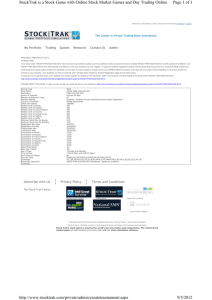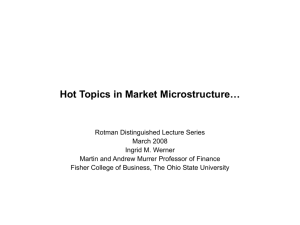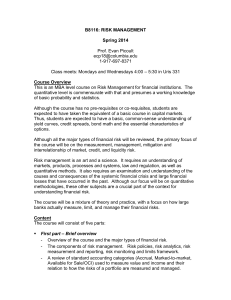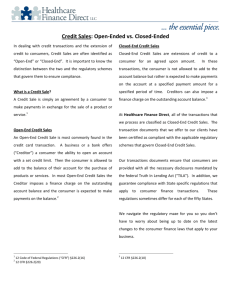Trading Illiquid Assets in a Liquidity Crisis An Examination of
advertisement
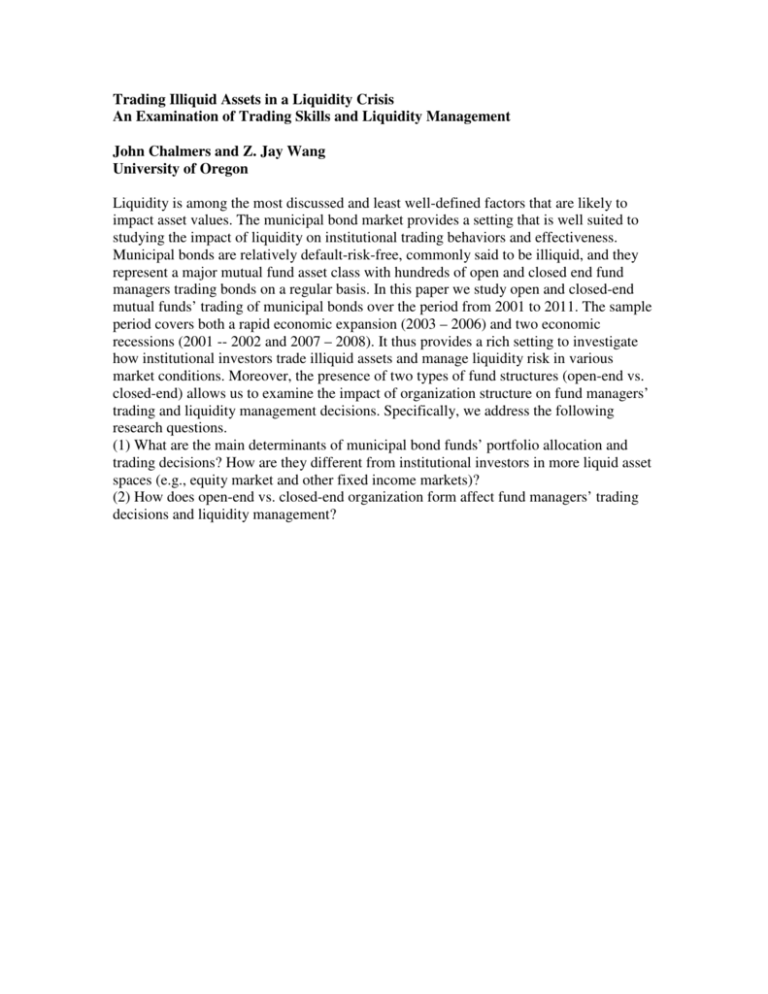
Trading Illiquid Assets in a Liquidity Crisis An Examination of Trading Skills and Liquidity Management John Chalmers and Z. Jay Wang University of Oregon Liquidity is among the most discussed and least well-defined factors that are likely to impact asset values. The municipal bond market provides a setting that is well suited to studying the impact of liquidity on institutional trading behaviors and effectiveness. Municipal bonds are relatively default-risk-free, commonly said to be illiquid, and they represent a major mutual fund asset class with hundreds of open and closed end fund managers trading bonds on a regular basis. In this paper we study open and closed-end mutual funds’ trading of municipal bonds over the period from 2001 to 2011. The sample period covers both a rapid economic expansion (2003 – 2006) and two economic recessions (2001 -- 2002 and 2007 – 2008). It thus provides a rich setting to investigate how institutional investors trade illiquid assets and manage liquidity risk in various market conditions. Moreover, the presence of two types of fund structures (open-end vs. closed-end) allows us to examine the impact of organization structure on fund managers’ trading and liquidity management decisions. Specifically, we address the following research questions. (1) What are the main determinants of municipal bond funds’ portfolio allocation and trading decisions? How are they different from institutional investors in more liquid asset spaces (e.g., equity market and other fixed income markets)? (2) How does open-end vs. closed-end organization form affect fund managers’ trading decisions and liquidity management?






